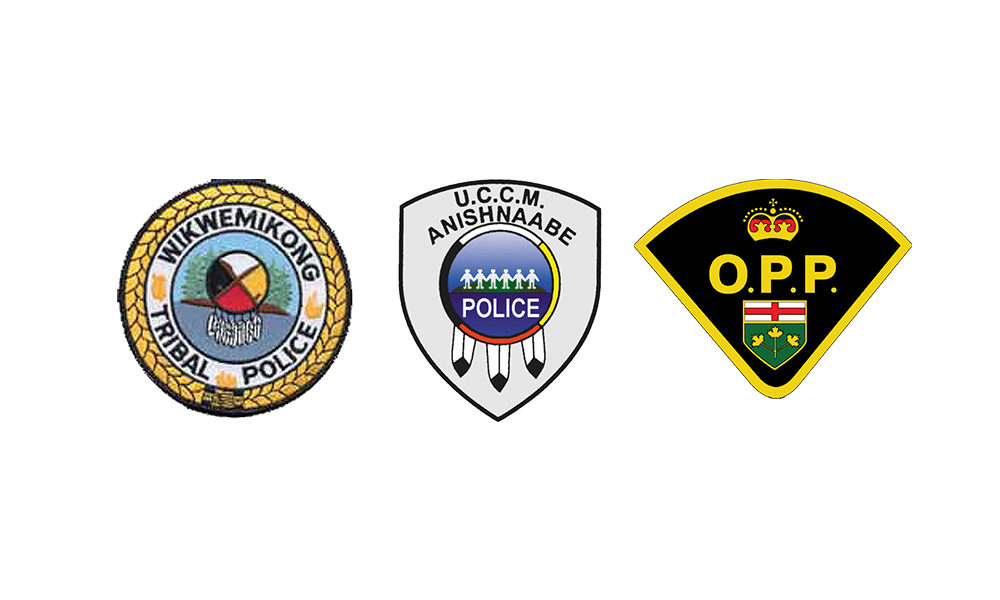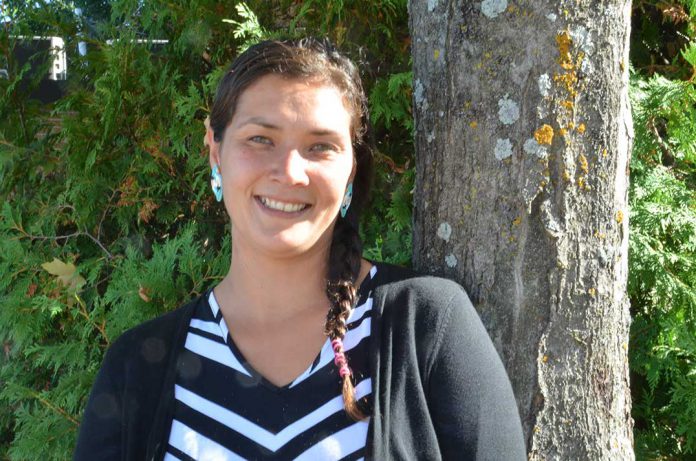Increase in number of mental health calls challenges police services
MANITOULIN––Nearly one third of people in Ontario will experience a mental health or addictions issue at some point in their lifetime. The Canadian Community Health Survey: Mental Health and Contact with Police in Canada, 2012, released June 2, 2015 noted that almost one in five contacts with police across Canada involved someone with a mental health or substance use disorder.
According to the survey, of the five million people who came into contact with police in 2011-12, approximately one in five (18.8 percent) met the criteria for a mental health or substance use disorder. One in three Canadians with a mental health disorder reported having contact with police.
Police services across Manitoulin Island have certainly noticed increases in mental health occurrences. Staff Sergeant Kevin Webb of the Manitoulin-Espanola OPP was unable to provide numbers and noted that overall he hasn’t seen an increase. “It goes in spurts,” he said. “There will be a handful of calls and then nothing for a while. There’s been a slight increase over the last two or three months but this time of year is a bad time for that type of thing. It’s the tail end of winter. We’ve had mood affecting weather, particularly this winter has been very grey.”
Wikwemikong Tribal Police Services Acting Police Chief Greg Mishibinijima noted an abundance of mental health calls in 2017, with a 76 percent increase from 21 occurrences in 2016 to 37 in 2017. 2016 showed a slight decrease from 23 in 2015. “Surely the numbers of these calls are increasing year after year,” he said. “Skyrocketing in 2017 and continuing into 2018. It’s gotten to the point where more criminal charges are being laid.”
“The numbers provided strictly deal with mental health calls where someone is attempting to harm themselves or someone else and won’t include occurrences where criminal charges were laid,” continued Acting Police Chief Mishibinijima. “It comes down to mental stability where we’ve had to bring someone to the hospital. We have the authority to bring them to be assessed. The offences are more serious each year. A lot of that is probably due to addictions, which has also increased. For someone who has committed a crime we have no option but to lay charges and the calls are reclassified.”
The number of mental health calls to UCCM Anishnaabe Police Services has also shown a dramatic increase but the number did decrease in 2017, likely due to the hiring of a social navigator in 2015. Police Chief Rodney Nahwegahbow noticed in a recent report to his board that “there has been an increase in the number of those types of calls and calls related to suicide.” UCCM police records showed that from 2012 to 2013 there was an increase in mental health calls of 11 percent; no change from 2013 to 2014; an increase of three percent in 2015 over 2014 and a substantial 31 percent increase in occurrences from 2015 to 2016. However, 2017 saw a 26 percent reduction over the previous year.
Staff Sergeant Carolle Dionne, Provincial Media Relations Coordinator with the Ontario Provincial Police (OPP) provided 2015 through 2017 numbers for all OPP jurisdictions in Ontario and these also reflect a substantial increase of 5.5 percent (14,022 occurrences in 2016 versus 13,291 occurrences in 2015) and 13.8 percent (15,963 occurrences in 2017 versus 14,022 in 2016).
Police services recognize that they are not always the best fit for mental health situations but they are often the first responders to these situations. Under the Mental Health Act police have the authority to apprehend an individual if they are at risk and to bring that individual to the hospital to be assessed. It can be demanding on police resources where there’s a transition from police to hospital.
“It certainly takes more time to deal with mental health calls,” agreed Police Chief Nahwegahbow. “Our resources are our people. We could have two officers waiting at the hospital. It’s very taxing on our delivery of regular services. Sometimes they have to stay overnight. Sometimes it takes two to three days.”
Manitoulin-Espanola OPP work hand in hand with local medical agencies, noted Staff Sergeant Webb. A draft Memorandum of Understanding (MOU) for a transfer of care protocol from police to hospital staff is currently being finalized. The MOU is a joint effort between Manitoulin-Espanola OPP, local hospitals, EMS, UCCM Anishnaabe Police Service and Wikwemikong Tribal Police. “It’s been very successful and has cut down on the time our officers have been at the hospital,” said Staff Sergeant Webb.
UCCM Police Services has taken the proactive measure of hiring a social navigator to help community members access the different types of services that they need and implementing a voluntary vulnerable persons registry. Police Chief Nahwegahbow attributes the reduction in mental health occurrences in 2017 largely to these factors. “We provide a different range or level of services to address community needs but we have to communicate with our community the types of services we provide. We have to provide access and link up referrals. Education and awareness really helps. It’s key,” he explained. “The only way we’ve been successful is through diversion. Funding for the social navigator is imperative for getting the awareness out there, to be able to make those referrals.”
The voluntary vulnerable persons registry is another useful tool, allowing police to revise their approach when dealing with persons who may be suffering from mental health issues, dementia, Fetal Alcohol Spectrum Disorder or addictions, for example, or to provide assistance through referrals to the appropriate agency. “We are more deliberate in our services as we approach the root of the problem,” said Police Chief Nahwegahbow. “More people are calling services for a referral that they didn’t previously know were available. By doing that we’re addressing those problems which allows for earlier intervention.”
On April 3 the Ministry of Community Safety and Correctional Services announced steps to implement a new police response framework that will help improve interactions with both vulnerable individuals and the general public. The new framework was developed with experts in mental health, addictions, psychology, civil liberties, policing, and anti-racism as well as Indigenous partners, racialized populations and individuals with lived experiences. The framework will be established by summer 2018.
See next week’s paper for part two of this series.





